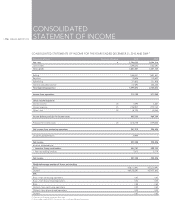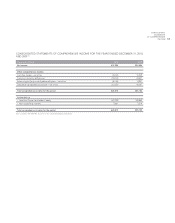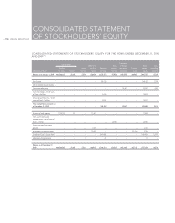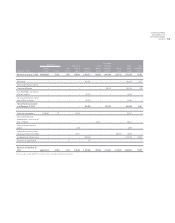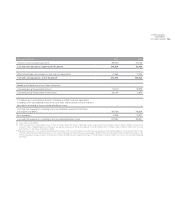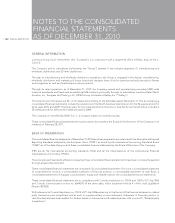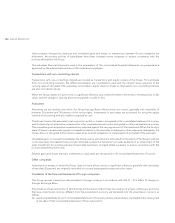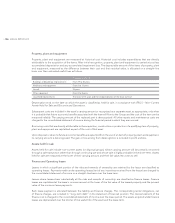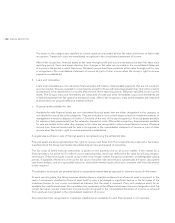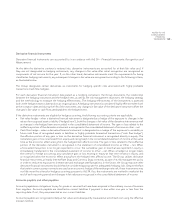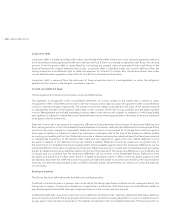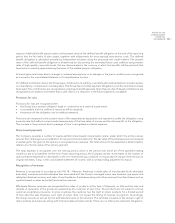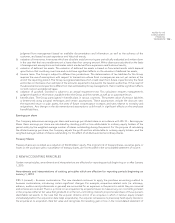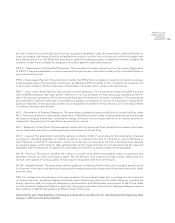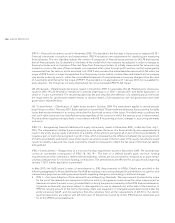LensCrafters 2010 Annual Report Download - page 128
Download and view the complete annual report
Please find page 128 of the 2010 LensCrafters annual report below. You can navigate through the pages in the report by either clicking on the pages listed below, or by using the keyword search tool below to find specific information within the annual report.
ANNUAL REPORT 2010> 126 |
Property, plant and equipment
Property, plant and equipment are measured at historical cost. Historical cost includes expenditures that are directly
attributable to the acquisition of the items. After initial recognition, property, plant and equipment is carried at cost less
accumulated depreciation and any accumulated impairment loss. The depreciable amount of the items of property, plant
and equipment, measured as the difference between their cost and their residual value, is allocated on a straight–line
basis over their estimated useful lives as follows:
Estimated useful life
Buildings and buildings improvements From 19 to 40 years
Machinery and equipment From 3 to 12 years
Aircraft 25 years
Other equipment From 5 to 8 years
Leasehold Improvements The lower of 10 years and the residual duration of the lease contract
Depreciation ends on the date on which the asset is classified as held for sale, in compliance with IFRS 5 – Non–Current
Assets Held for Sale and Discontinued Operations.
Subsequent costs are included in the asset’s carrying amount or recognized as a separate asset, as appropriate, only when
it is probable that future economic benefits associated with the item will flow to the Group and the cost of the item can be
measured reliably. The carrying amount of the replaced part is derecognized. All other repairs and maintenance costs are
charged to the consolidated statement of income during the financial period in which they are incurred.
Borrowing costs that are directly attributable to the acquisition, construction or production of a qualifying item of property,
plant and equipment are capitalized as part of the cost of that asset
Upon disposal or when no future economic benefits are expected from the use of an item of property, plant and equipment,
its carrying amount is derecognized. The gain or loss arising from derecognition is included in profit and loss.
Assets held for sale
Assets held for sale include non–current assets (or disposal groups) whose carrying amount will be primarily recovered
through a sale transaction rather than through continuing use and whose sale is highly probable in the short–term. Assets
held for sale are measured at the lower of their carrying amount and their fair value, less costs to sell.
Finance and Operating leases
Leases in which a significant portion of the risks and rewards of ownership are retained by the lessor are classified as
operating leases. Payments made under operating leases (net of any incentives received from the lessor) are charged to
the consolidated statement of income on a straight–line basis over the lease term.
Leases where lessees bear substantially all the risks and rewards of ownership are classified as finance leases. Finance
leases are capitalized at the lease’s commencement at the lower of the fair value of the leased property and the present
value of the minimum lease payments.
Each lease payment is allocated between the liability and finance charges. The corresponding rental obligations, net
of finance charges, are included in “long–term debt” in the statement of financial position. The interest element of the
finance cost is charged to the consolidated statement of income over the lease period. The assets acquired under finance
leases are depreciated over the shorter of the useful life of the asset and the lease term.


